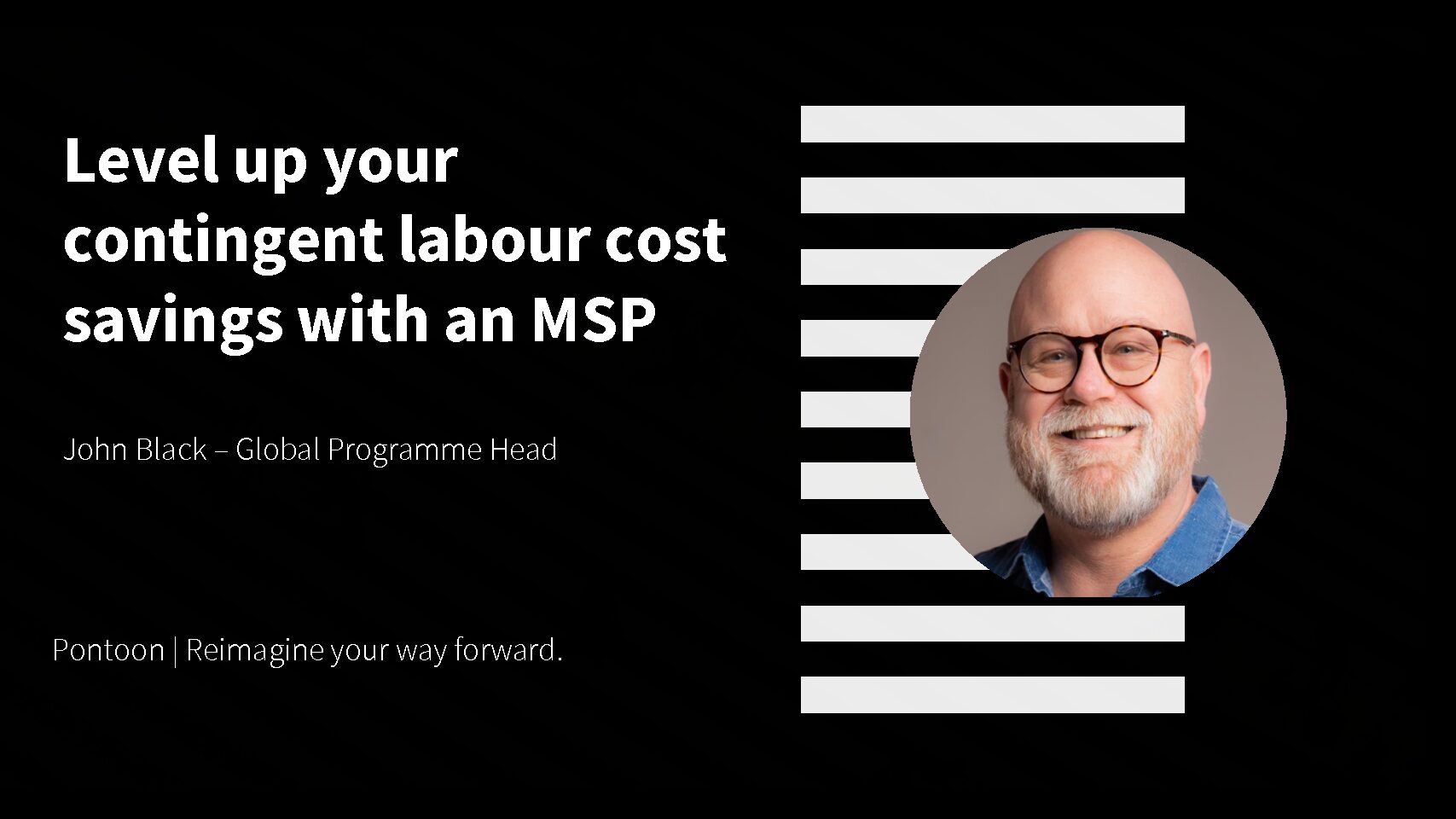A beginner’s guide to mastering the open talent economy
The world of work has evolved at an incredible pace over the last twenty-five years. At the start of the 21st century, two critical routes to securing talent and expertise were hiring permanent staff and engaging contingent workers. Fast forward to the present, and we have plenty of other opportunities. We now live in an open talent economy, bringing a more flexible and dynamic approach to talent acquisition. There are many more routes to source qualified candidates, and new ones continue to open as workforce dynamics and business needs are changing.

Jon Milton, Sales Director UK
Let’s take the UK as an example. Over here, it’s now commonplace to deploy consultants and consultancies in addition to traditional permanent and contingent hiring – this market is currently worth £14bn per annum. Businesses can engage project teams to get work done, where the responsibility for recruitment, retention and – importantly – delivery is outsourced to a third party. Other options include reskilling, upskilling, and hire-train-deploy models.
In today’s world, talent can be engaged onshore and offshore, as remote employment means work can be done from anywhere.
How did we get here
The move toward an open talent economy was already well underway before the pandemic gave it a push. The 2008 banking crisis and subsequent recession fundamentally changed people’s and businesses’ perspectives on employment, giving rise to a gig economy and extended workforce. Reports show that 49% of the average company’s workforce today is comprised of external talent, including resources engaged outside recognised and visible channels.
The other big driver for change pre-pandemic came from the technological advances that have since transformed the way companies do their business. Think about how banking has changed through automation. Electronic payments tripled across the eurozone between 2019 and 2022, steadily turning banks into fintech companies that must compete with other industries to hire tech talent.
These shifts have fundamentally impacted the operations of many industries. Practically every company has automated and significantly changed their processes in some way and will continue to do so as new technological developments open up.
Where are we now, and how do we take things forward
“The pace of change has never been this fast, yet it will never be this slow again” – Justin Trudeau
So far, traditional hiring and engagement mechanisms continue to dominate in the open talent economy. Still, commoditisation and the ongoing quest for ‘same for less’ in a talent market where demand exceeds supply has led to new, bespoke solutions that fall outside of those traditional channels. It offers many opportunities but can be challenging, as the dynamics are changing fast. Here are a few practical suggestions that can get you started.
Don’t try to boil the ocean
Delivering meaningful change should start by taking small manageable steps rather than trying to accomplish everything at once. Start by identifying legacy workforce challenges that haven’t gone away and might need a fresh approach. Or focus on expected workforce issues that could do with having a range of options to consider.
It’s good to talk
Getting an objective opinion from someone outside your business is an excellent way of finding new inspiration. A knowledgeable Managed Service Provider might be a good place to start.
Use case studies to build the business case for change
Once you’ve discussed your problem and identified potential solutions, ask for some case studies. Benchmarks help de-risk a business case by outlining how others solved similar challenges and what benefits they realised.
Implement change
Once you’ve articulated the problem, outlined a recommended solution and gained approval to go ahead, begin the change process.
What’s next, and how can we support
What will the open talent economy look like in a few years?
That’s difficult to predict, but we can certainly help you chart a course forward. Our work with a broad range of customers and suppliers means we have the expertise and experience to help you along the way. The essential element of our strategy is to work together across all brands within the Adecco Group to give our customers unrivalled access to traditional and new talent acquisition avenues developed within the open talent economy.
For example, we teamed up with the Adecco Group brands to help our client achieve MSP KPIs and SLAs – both Akkodis and Adecco Middle East supported filling the contract roles. Our MSP solution shifted from experience-based to skill-based hiring, reducing cycle times and increasing throughput. In addition, we leveraged a third-party talent assessment platform that significantly improved the quality of candidates submitted to requisitions.
On a different occasion, we leveraged the power of Adecco Group’s ecosystem to boost our customer’s RPO solution. Speed to hire was critical for the client, so we connected with LHH Recruitment Solutions and Akkodis, the Adecco Group’s tech and engineer staffing arm, to discuss options for quickly plugging in their hiring capabilities.
Get in touch with us through this form to share your challenges and start a conversation about how we can support your journey.
Related Post
The challenges of managing your contingent workforce
Many organisations are turning to contingent labour to cut costs and keep staffing levels flexible.
[caption id="attachment_9554" align="alignleft" width="150"] John Black - Global Programme Head[/caption]
However, ...




